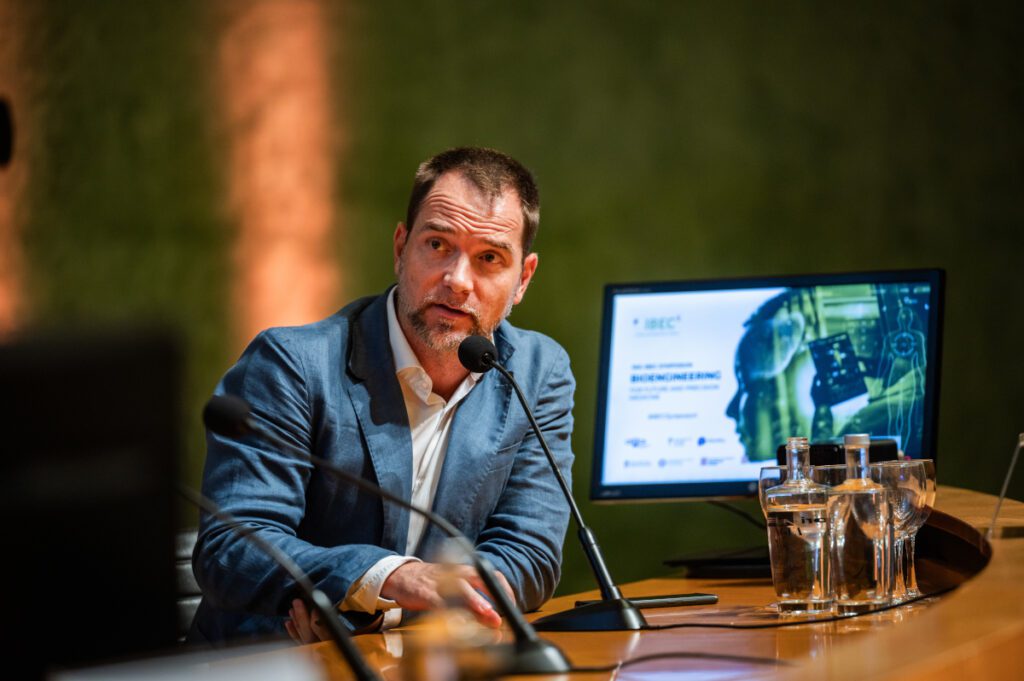Samuel Sánchez, ICREA Research Professor at the Institute for Bioengineering of Catalonia (IBEC), will lead the OrthoBots project, which focuses on the treatment of joint diseases using nanorobots. To carry out the project, Sánchez has been awarded an ERC Proof of Concept Grant, a prestigious grant from the European Research Council.

Samuel Sánchez, ICREA Research Professor at the Institute of Bioengineering of Catalonia (IBEC), will lead the OrthoBots project, which focuses on the treatment of joint diseases using nanorobots. This project starts with some of the results of Noelia Ruiz González’s doctoral thesis, from Samuel Sánchez’s group, recently published in Small. In it, Ruiz studies the design and development of enzyme-driven nanorobots for use in the treatment of joint diseases such as arthritis.
Arthritis, an inflammatory disease that affects millions of people worldwide, is mainly characterised by osteoarthritis, a chronic degenerative disease that worsens with age and represents a significant economic burden for healthcare systems.
A promising alternative to current treatments is platelet-rich plasma (PRP) therapy. PRP harnesses the regenerative potential of growth factors, proteins found in the blood that play a key role in injury repair, to stimulate tissue repair processes, particularly in cartilage and bone cells. However, it is common for these proteins to be rapidly degraded upon contact with synovial fluid, limiting their therapeutic efficacy and distribution.
To overcome these obstacles, scientists are exploring advanced drug delivery systems that use nanoparticles as transporters. Although promising, passive diffusion of nanoparticles across viscous biological barriers, such as synovial fluid, remains a significant obstacle.
This innovative approach has transformative potential, potentially revolutionising arthritis therapy by overcoming current limitations and offering more effective and personalised treatment strategies.
Samuel Sánchez
OrthoBots is presented as an answer to this problem. The project aims to develop enzyme-powered nanoparticles, known as nanorobots, to improve the transport and delivery of these growth factors, facilitating targeted cartilage regeneration.
“This innovative approach has transformative potential, potentially revolutionising arthritis therapy by overcoming current limitations and offering more effective and personalised treatment strategies,” says project leader Samuel Sánchez. Through systematic in vitro studies and in vivo proof of concept, OrthoBots aims to pave the way for the next generation of arthritis therapies, addressing unmet clinical needs and improving patient outcomes.
To carry out the project, Sánchez was awarded an ERC Proof of Concept Grant. This is a prestigious grant awarded by the European Research Council (ERC) to explore the commercial and societal potential of research projects that are or have been funded by the ERC. Applicants use this type of funding to test the practical feasibility of scientific concepts, explore business opportunities or prepare patent applications. This is the sixth grant Samuel Sánchez has received from the European Research Council and the third in the Proof of Concept category.





